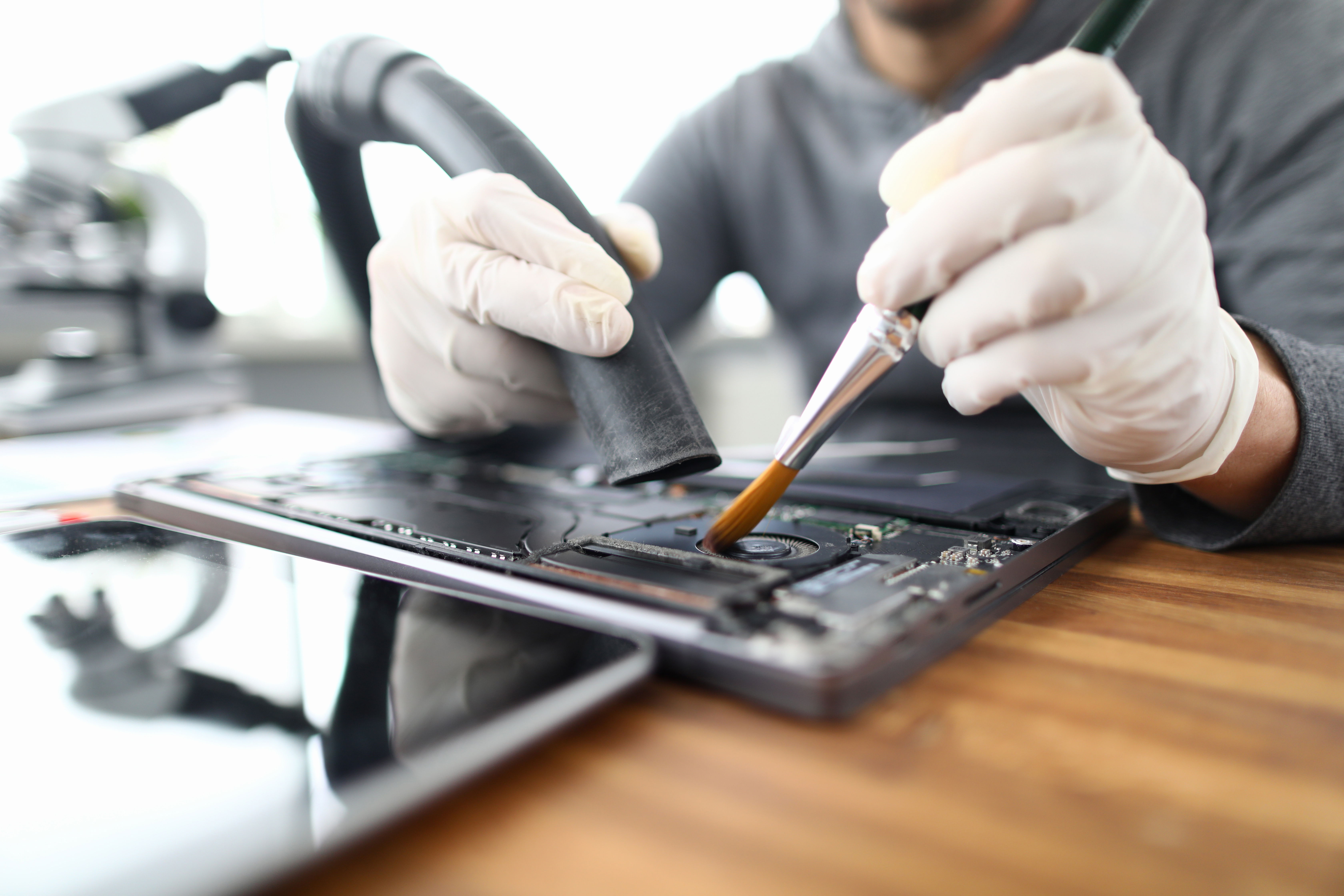The Slow Fade
Recognizing When Your Tech Is Telling You Something.
Devices don’t usually break without warning. They whisper before they scream. The laptop that takes a little longer to boot. The phone that overheats just a bit too quickly. The tablet that hesitates before launching an app. These aren’t random quirks. They’re quiet signals. At Reboot Masters, we help people listen to those signals. Because when tech begins to fail, it rarely does so all at once. And if you pay attention, you can catch the fall before it happens.
Not All Failures Are Sudden
The myth of sudden failure is comforting. It makes it easier to shrug and say, “It just died.” But the truth is more complex. Hardware and software often decline gradually. Performance dips. Components wear. Systems lose efficiency. You don’t notice it at first. Then one day, it’s unusable. But it didn’t happen overnight. You just weren’t watching.

Symptoms You Shouldn’t Ignore
Every device has its way of asking for help. Here are some common signs that something is wrong:
- Your fan runs constantly, even when idle
- Battery life drops drastically with no clear reason
- Files take longer to open or save
- Your screen flickers or randomly turns off
- The keyboard registers the wrong keys
- Storage space fills up even when you delete things
- Apps crash without explanation
These may seem like minor annoyances. But they’re also messages. Each one is a small flag saying, “Something’s off.” The earlier you respond, the more options you have.
What Causes the Fade?
Decline can come from many places.
- Dust buildup can cause overheating
- Fragmented hard drives slow everything down
- Dying batteries cause random shutdowns
- Corrupted files interfere with performance
- Too many background tasks eat up memory
- Age — every component has a lifespan
Sometimes it’s one of these. Sometimes it’s all of them. The point is, decline is natural. What matters is how you respond.
Observation Builds Skill
We don’t just fix computers. We teach people how to notice. That’s the heart of diagnostics. Not memorizing problems and solutions, but learning how to observe. Patterns. Sounds. Speed. Behavior. It’s like learning a language. At first it’s noise. Eventually, you hear meaning. Tech speaks. Not with words, but with rhythm, with heat, with hesitation. The more you listen, the better you become at preventing disaster.
Patience Beats Panic
The slow fade often leads people to frustration. They slam keys, restart endlessly, or give up entirely. But panic never solved a performance issue. Patience does. Curiosity does. Instead of saying “it’s just old,” ask, “What is it trying to tell me?” You might discover that a single driver update, fan cleaning, or storage upgrade could restore months or years of smooth use.
Respect Your Tools
Devices are extensions of us. We rely on them to create, communicate, store, remember. And yet, we often treat them as disposable. When something breaks, we toss it. But what if we treated our tech with more respect? What if we responded to slowness not with blame, but with care? That’s what Reboot Masters teaches. Not just how to repair, but how to notice. How to pay attention before it’s too late.
Conclusion: Learn to Hear the Whisper Before the Crash
Technology will fail. That’s inevitable. But failure doesn’t have to be catastrophic. If you listen closely, your devices will tell you when they need help.And when they do, you don’t have to be a technician. You just have to be attentive. Curious. Willing to respond.Reboot Masters exists to make that easier. We’re here to decode the signals, offer solutions, and remind you that slowness is not always the end. Sometimes, it’s just the beginning of a smarter way to care.
